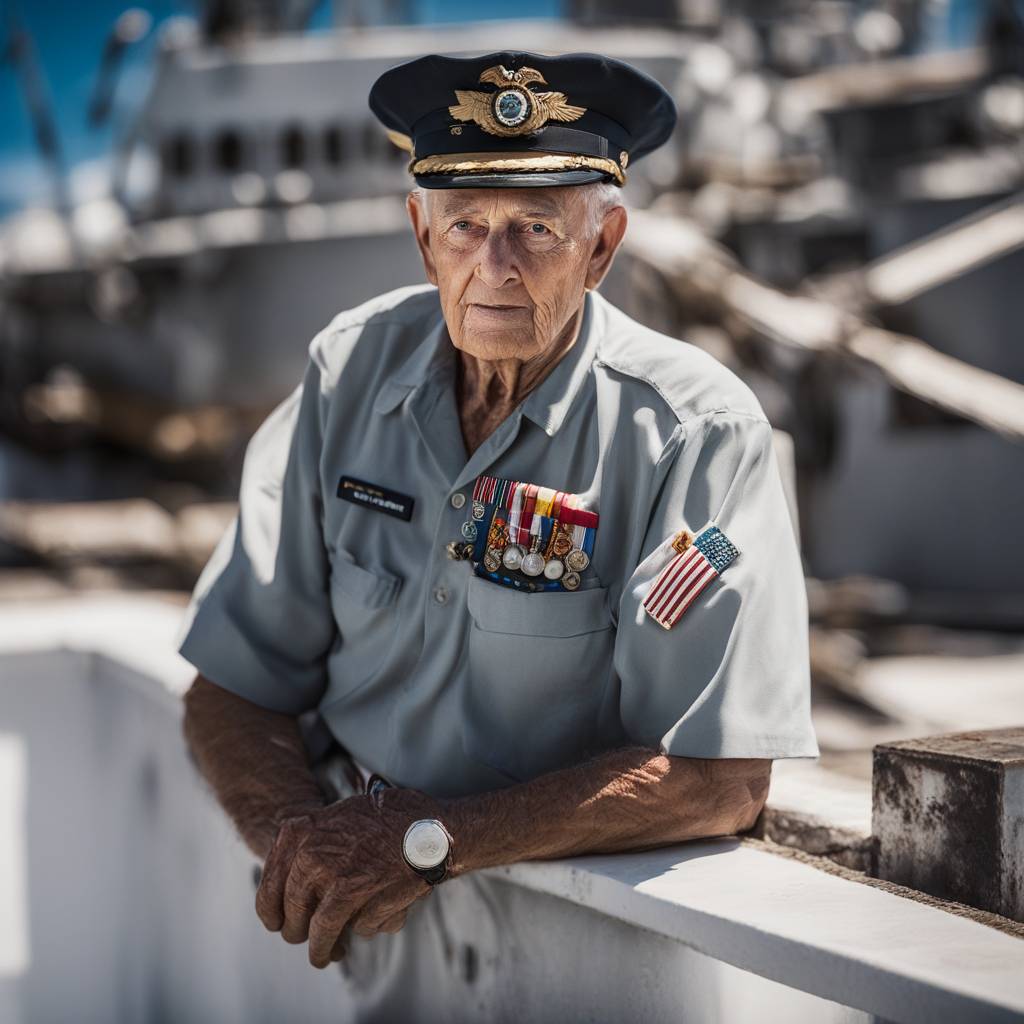Lou Conter, the tough last survivor of the USS Arizona, lived a long life, passing away at the age of 102 from congestive heart failure. He was on deck during the attack on Pearl Harbor on December 7, 1941, and remembered every brutal second of the tragedy. The ship was bombed and sunk by the Japanese, resulting in the deaths of 1,177 men on board. Conter achieved the rank of Lieutenant Commander and was a naval aviator.
Conter used his long life to keep the memories of Pearl Harbor alive by doing interviews up until he was 100 years old. He vividly recalled the moments leading up to the attack, as he was the quartermaster on watch when the first plane crossed at 7:55 a.m. that Sunday morning. The attack lasted for about 40 minutes, during which the ship was hit by a 50-60-hundred-pound bomb alongside the number two turret. The explosion ignited gunpowder stored in the hull, propelling the battleship into the air and setting it on fire from the mainmast forward.
After the first big blast hit, Conter was fortunate to be knocked forward on the deck, while others were thrown off the ship into the water. He, along with other sailors, began helping the injured men and preventing them from jumping overboard. As the USS Arizona sank, they took boats to pick up bodies out of the water. Conter and other survivors tended to the injured, many of whom were blinded and badly burned, until they were sure they had rescued all those still alive.
During the attack on Pearl Harbor, a total of 19 ships and 188 planes of the Pacific Fleet were lost, resulting in the death of 2,403 Americans and the injury of over 1,100. The US entered World War II as a result of the attack. Conter was blunt about some of the myths that arose after the attack, particularly the misconception that many of the seamen were asleep when the Japanese attacked. He emphasized that they went to their battle stations and were all killed there.
After the tragedy at Pearl Harbor, Conter went to flight school and flew combat missions with the “Black Cats” squadron in the Pacific. He survived being shot down near New Guinea and used his experiences to become the Navy’s first SERE officer, training personnel on survival techniques. Conter was survived by his children, grandchildren, and great-grandchildren. His passing was met with tributes and well-wishes, honoring his courageous spirit as he embarked on his next journey.













